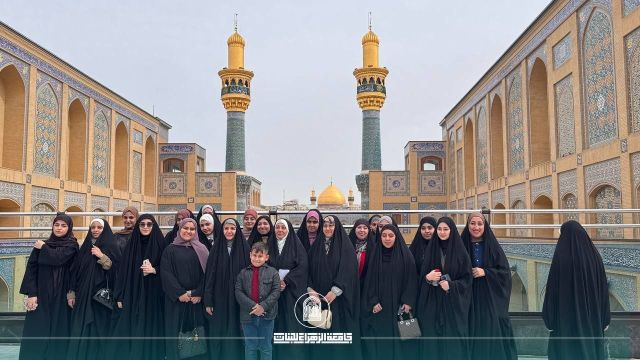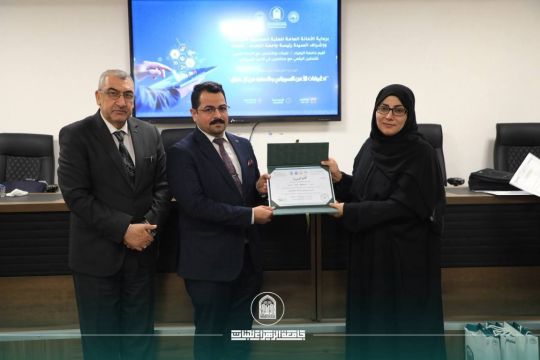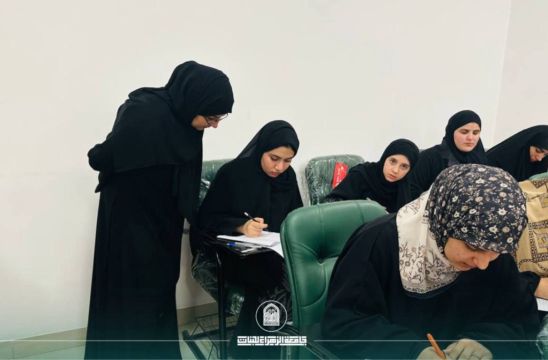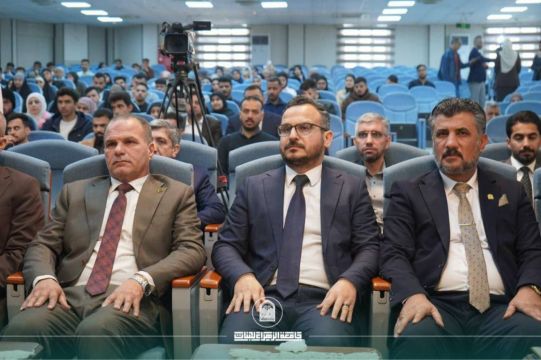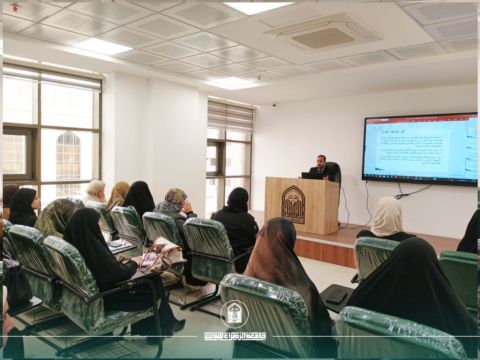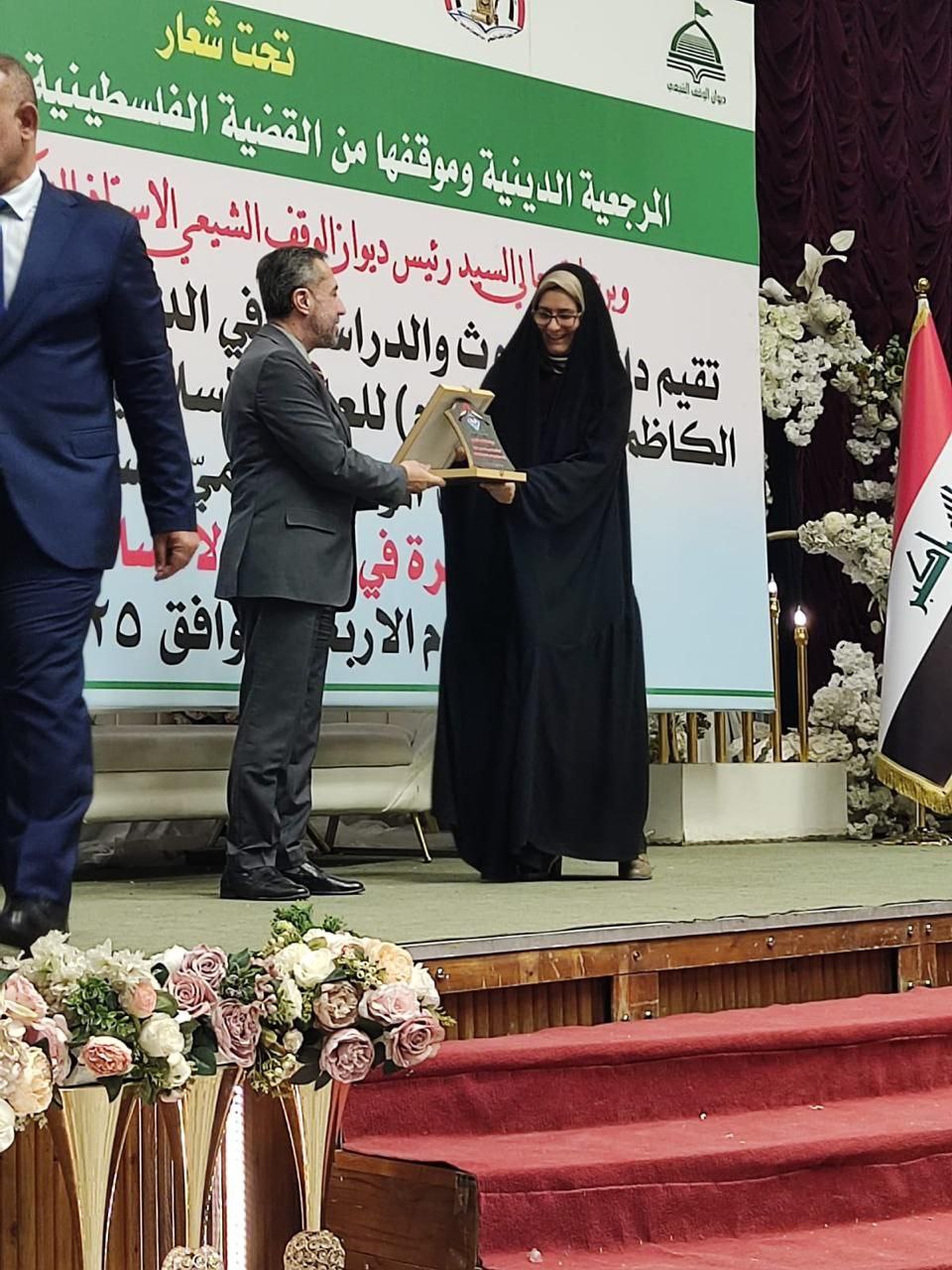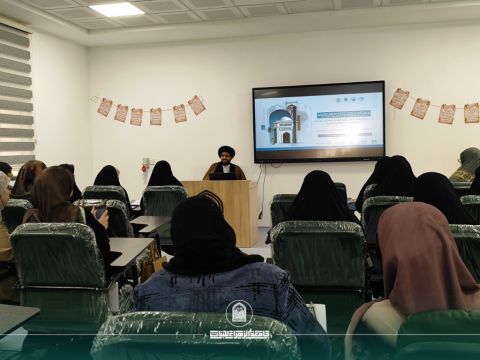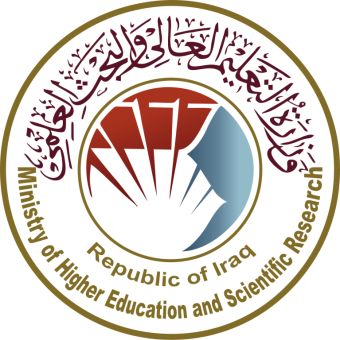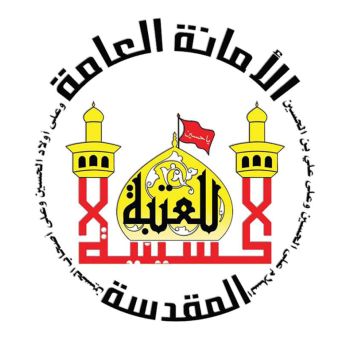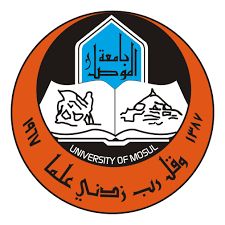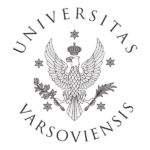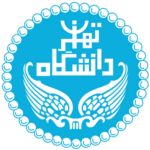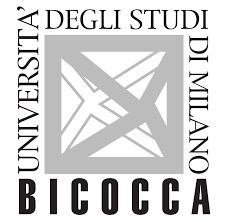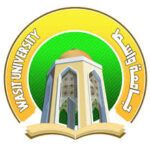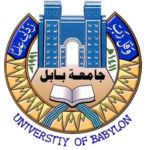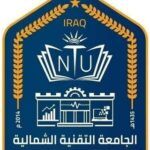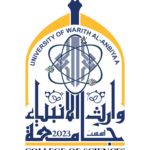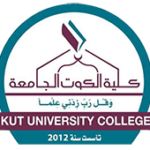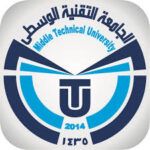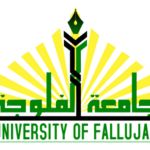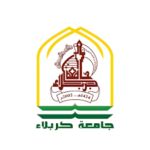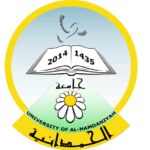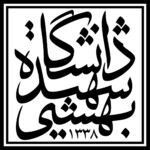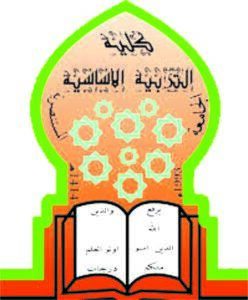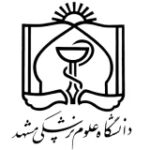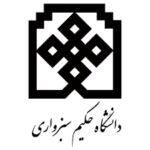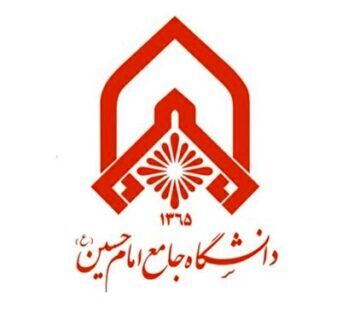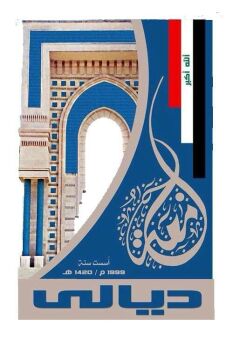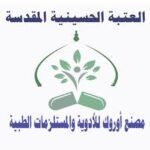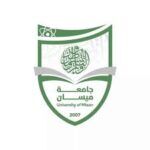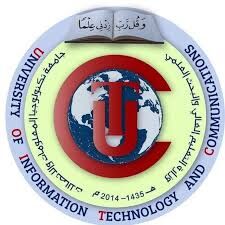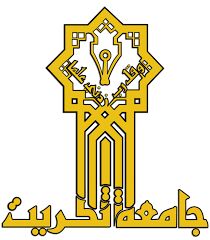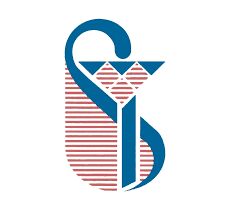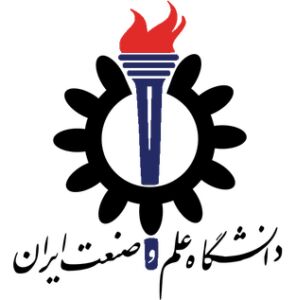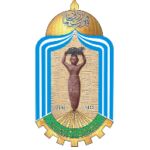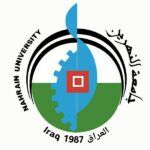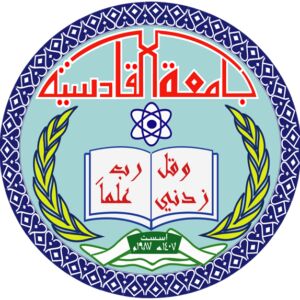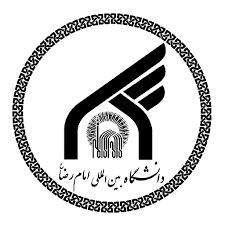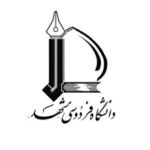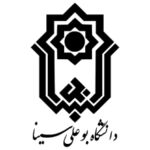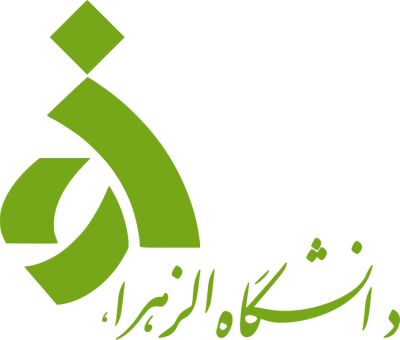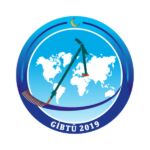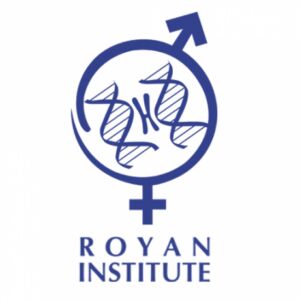Al-Zahraa University (PBUH) for Women continues to fulfill its scientific and cultural mission across multiple fields, reflecting its dedication to fostering an atmosphere of knowledge and academic authenticity within specialized institutions and the broader community alike.
Out of great pride in our beautiful Arabic language, and under the guidance of the University President, Prof. Dr. Zainab Al-Mulla Al-Sultani, the university strives to promote the proper functional, literary, and scientific use of Arabic—our distinctive cultural identity and the main fortress against intellectual invasion in all its forms.
Coinciding with World Arabic Language Day, the Department of Arabic Language at Al-Zahraa University (PBUH) for Women organized the Fourth Annual Forum to commemorate this global event. It was held on December 19–20, 2022, in Umm Abiha Hall at the university headquarters, under the slogan:
“The Arabic Language between Identity Empowerment and Civilizational Communication.”
The forum was marked by a remarkable and distinguished presence of high-ranking figures from various universities, academic associations, and specialized centers. As the “Lady of Languages”—the most eloquent and precise tongue—Arabic was chosen by God to be the language of His Holy Book.
The forum aimed to highlight the importance of the Arabic language, instill a sense of belonging and pride in it as the most complete and honorable of all languages, and emphasize its role as a symbol of the nation and its unity. It also sought to encourage intellectual exchange and collaboration, generating new visions to preserve and promote this ancient language.
The first day’s program opened with the recitation of verses from the Holy Qur’an by Muezzin Salah Al-Shuraikhani from the Holy Shrine of Imam Al-Hussain (PBUH), followed by the recitation of Al-Fatiha in memory of the heroic martyrs who sacrificed their lives to defend our homeland and protect our people from terrorism and darkness. The national anthem was then played.
Dr. Alaa Diaa Al-Din, Deputy Secretary-General of the Holy Shrine of Imam Al-Hussain (PBUH), delivered the Shrine’s address, highlighting “the major role established by the Holy Shrine in promoting the language of the Qur’an, strengthening its presence, and emphasizing its true value in Arab and Islamic societies, for it represents the core of identity and the foundation upon which communities are built.” He further explained that the Shrine’s attention to Arabic begins from early childhood through schools and universities to reinforce and preserve this distinguished language from any attempts to distort or erase its original identity.
The President of Al-Zahraa University (PBUH), Prof. Dr. Zainab Al-Mulla Al-Sultani, stated that “this fourth edition of the forum renews and revives our Arabic language and serves as a reminder to its speakers.” She described it as “a purposeful message directed toward academics and students in particular, and to governmental and social institutions in general.” Dr. Al-Sultani stressed the importance of preserving the language of the Qur’an and the people of Paradise from extinction, marginalization, or cultural displacement. She also pointed to the serious cultural challenges Arabic faces today—especially through social media, such as Facebook—where colloquial dialects are increasingly replacing Standard Arabic. She emphasized that protecting Arabic is a shared responsibility since it embodies our constitutional and Qur’anic identity chosen and honored by God.
The President of the Iraqi Scientific Academy, Prof. Dr. Mohammed Hussein Al-Yassin, also delivered a speech, emphasizing “the ancient history of the Arabic language, its deep Qur’anic and Islamic roots, and its continued endurance through centuries despite all attempts to undermine it.” He concluded that maintaining this cultural and civilizational treasure is a collective duty shared by individuals and institutions alike.
The Dean of the College of Education, Prof. Dr. Iman Bahiyya, warmly welcomed all distinguished guests—among them the Deputy Secretary-General of the Holy Shrine, the President of the University of Warith Al-Anbiya, the University President, and the President of the Iraqi Scientific Academy—expressing her gratitude for their participation in celebrating World Arabic Language Day. She recited the Qur’anic verse:
“My Lord, enable me to be grateful for Your favor which You have bestowed upon me and upon my parents and to do righteousness of which You approve” (Qur’an 27:19), wishing the audience a fruitful and enriching event.
Dr. Huda Al-Amidi, Head of the Arabic Language Department, expressed her deep appreciation to the University President and the College of Education for their support, as well as to the Holy Shrine for its sponsorship. She emphasized the department’s continuous efforts to restore the dignity of the Arabic language by integrating workshops and developmental activities with the academic curriculum in line with the Ministry of Higher Education’s goals and the Shrine’s vision of producing creative and competent graduates.
Dr. Al-Amidi highlighted that “many of society’s problems stem from linguistic ignorance—misinterpretations leading to conflict, family breakdowns caused by miscommunication, and religious disputes arising from misunderstanding language. The key to resolving all of these issues lies in mastering the language and learning the art of communication.”
The scientific sessions of the forum included the discussion of numerous linguistic and grammatical research papers from Iraq and abroad (Syria, Algeria, Tunisia, and several Iraqi universities such as Kufa, Basra, and Anbar), reflecting the ongoing development of Arabic studies.
A play titled “She Complains of Her People”, written by Dr. Farah Al-Fadhli, directed by Dr. Khalid Kazem Humaidi, and performed by talented students of the Arabic Department, was also presented. The play blended symbolism and realism to portray the challenges facing the Arabic language amid cultural globalization and identity crises.
Additionally, the program featured a musical performance titled “The Prophet’s Daughter”, written and composed by Abbas Badawi, performed by distinguished Arabic Department students.
At the conclusion of the first day, Prof. Dr. Zainab Al-Mulla Al-Sultani expressed her gratitude to all esteemed guests, organizers, and participants, including the Dean of the College of Education, the Head of the Arabic Department, and the department’s staff and students. Honoring ceremonies for the guests and researchers followed.
The second day featured a series of activities, including a research session, a calligraphy exhibition, and a lecture on the history and styles of Arabic calligraphy, highlighting the influence of the Ahlulbayt (PBUH) School on its development. The event concluded with the honoring of the Arabic Department’s staff and participating students.
The forum concluded with a set of scientific recommendations, most notably:
1. The necessity of integrating Arabic into daily life and promoting its proper use as an essential part of our identity.
2. Encouraging awareness of global linguistic research that demonstrates Arabic’s resilience across time and its potential to endure for centuries.
3. Teaching Arabic language courses across all scientific departments, not only in humanities.
4. Urging institutions and research centers to Arabize scientific and theoretical knowledge.
5. Organizing workshops and seminars to train employees in government offices to use Standard Arabic in official communication.
6. Coordinating efforts among Arabic language departments across Iraq to unify the celebration date of World Arabic Language Day, ensuring wider participation.
It is worth noting that the Department of Arabic Language at Al-Zahraa University (PBUH) for Women has signed several cooperation agreements with local and international universities—including the University of Milan (Italy)—aimed at expanding academic and research collaboration. This initiative reflects the university’s broader efforts to enhance performance and strengthen ties with reputable educational institutions worldwide.

